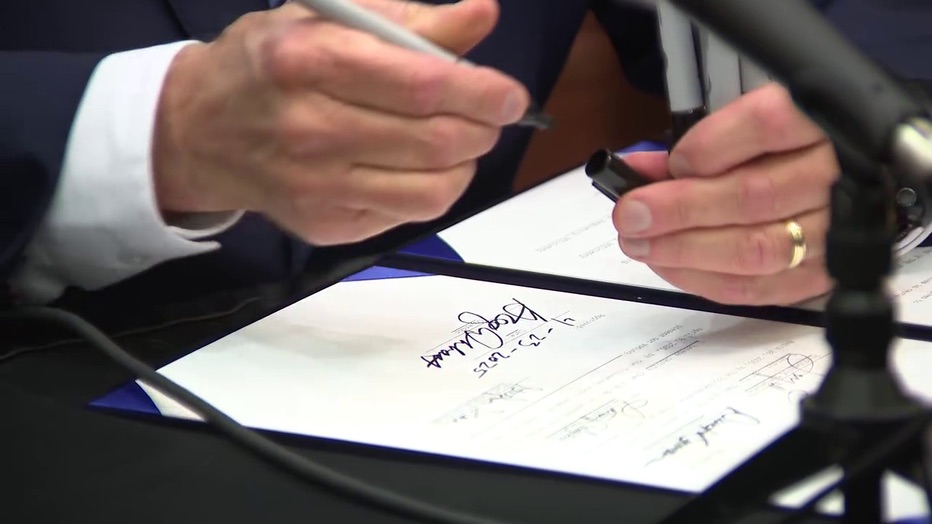
AUSTIN, Texas – In a landmark move aimed at reducing bureaucratic hurdles and fostering economic growth, Governor Greg Abbott signed a bill on Wednesday establishing the Texas Regulatory Efficiency Office. The initiative underscores the state’s commitment to cutting red tape, enhancing government transparency, and reinforcing Texas’s reputation as a business-friendly environment.
Flanked by Lt. Governor Dan Patrick and House Speaker Dustin Burrows, Abbott emphasized the urgency of modernizing the state’s regulatory landscape.
“While Texas has long been recognized for its favorable regulatory climate, recent data shows we now rank fifth in the nation for regulatory burden,” Abbott stated. “That’s unacceptable. The creation of this office will streamline processes, reduce unnecessary regulations, and ensure new policies meet stricter standards.”
A Streamlined Path to Regulatory Reform
Lt. Gov. Dan Patrick echoed Abbott’s sentiments, describing the bill as “DOGE, Texas style,” referencing Elon Musk’s Department of Government Efficiency.
“Our goal is a comprehensive review of state agencies—identifying where we can trim excess, save businesses money, and ultimately deliver savings to taxpayers,” Patrick explained. “This legislation will bolster transparency, attract new businesses, and generate more jobs for Texans.”
House Speaker Dustin Burrows further underscored the importance of regulatory clarity for both businesses and citizens.
“Texans deserve regulations that are easy to understand, consistent, and minimal,” Burrows said. “This office will ensure our policies are aligned with those expectations, creating a clearer and more efficient path for businesses and citizens alike.”
Key Components of Senate Bill 14
Senate Bill 14, authored by Weatherford Republican Phil King and supported by Lt. Gov. Patrick, serves as the foundation for the newly established Texas Regulatory Efficiency Office. Key provisions include:
- Creation of an advisory panel composed of business leaders, researchers, state agencies, and public representatives to collaborate with the governor on streamlining regulatory processes.
- Elimination of outdated and redundant regulations to foster a more efficient business environment.
- Development of a user-friendly online portal for public access to state regulations, ensuring greater transparency and ease of navigation.
The bill passed decisively, with a 97-51 vote in the Texas House and a 26-5 vote in the Senate.
Enhancing Government Efficiency
Complementing this initiative, the House has already formed the Committee on Delivery of Government Efficiency to examine potential fraud, waste, and inefficiencies within state programs. The committee, which convened for the first time on March 5, is tasked with recommending legislative solutions to modernize and optimize government operations. Areas of focus include:
- The Department of Information Resources
- The newly formed Texas Space Commission
- The Sunset Advisory Commission
A Forward-Thinking Future for Texas
With the establishment of the Texas Regulatory Efficiency Office, state leaders are signaling a strong commitment to maintaining Texas’s competitive edge while ensuring its regulatory framework remains transparent, efficient, and business-friendly.
“This is about creating a regulatory environment that not only supports businesses but also empowers Texans,” Abbott concluded. “By cutting red tape and modernizing our systems, we’re paving the way for a stronger, more prosperous Texas.”
For more information on Senate Bill 14 and the Texas Regulatory Efficiency Office, visit state.gov/RegulatoryEfficiencyOffice.




